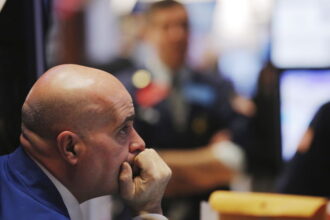Investing.com– Oil prices rose on Friday and were set for a sixth straight positive week as major producers Saudi Arabia and Russia extended recent supply cuts, although gains were limited ahead of key U.S. payrolls data.
The world’s biggest oil producers said on Thursday that they will push their respective supply cuts until end-December and potentially beyond. Saudi Arabia will maintain its 1 million barrels per day (bpd) cut in production, while Russia will cut oil exports by 300,000 bpd.
The cuts came just before a meeting of the Organization of Petroleum Exporting Countries and allies (OPEC+) on Friday, with the two biggest members of the cartel also flagging potentially deeper cuts to push up oil prices.
But the cartel is expected to announce no changes to its overall output on Friday.
Still, the cuts helped oil prices recoup all of their losses for the week, as traders bet that tightening supplies will largely offset a potential downturn in demand this year, amid weak global economic conditions.
Oil prices head for sixth week of gains as supplies tighten
rose 0.3% to $85.45 a barrel, while rose 0.4% to $81.91 a barrel by 21:39 ET (01:39 GMT). Both contracts were set to rise 0.5% and 1.6% for the week, respectively.
The outlook for oil markets was also aided by logging a substantially bigger-than-expected draw for the past week, of over 17 million barrels. The reading was the biggest draw seen in data dating back to 1982, and showed that oil supplies in the world’s largest consumer were tightening.
This helped markets largely look past concerns over a downgrade to the U.S. sovereign rating by Fitch, with analysts also positing an improved outlook for oil prices this year, as supplies tighten.
Gains limited as U.S. nonfarm payrolls loom
But while oil prices were set for a sixth straight week of gains, their momentum slowed in recent sessions amid pressure from a stronger . The greenback rose sharply this week on fears of a hawkish outlook for the Federal Reserve.
Gains in oil prices were also limited on Friday as markets hunkered down before key data for July. Any signs of strength in the labor market is likely to present a more hawkish outlook for U.S. interest rates, which could boost the dollar and dent oil markets.
data released earlier this week also pointed to strength in the U.S. jobs market, potentially heralding a similar reading from official data due later in the day.
Read the full article here










